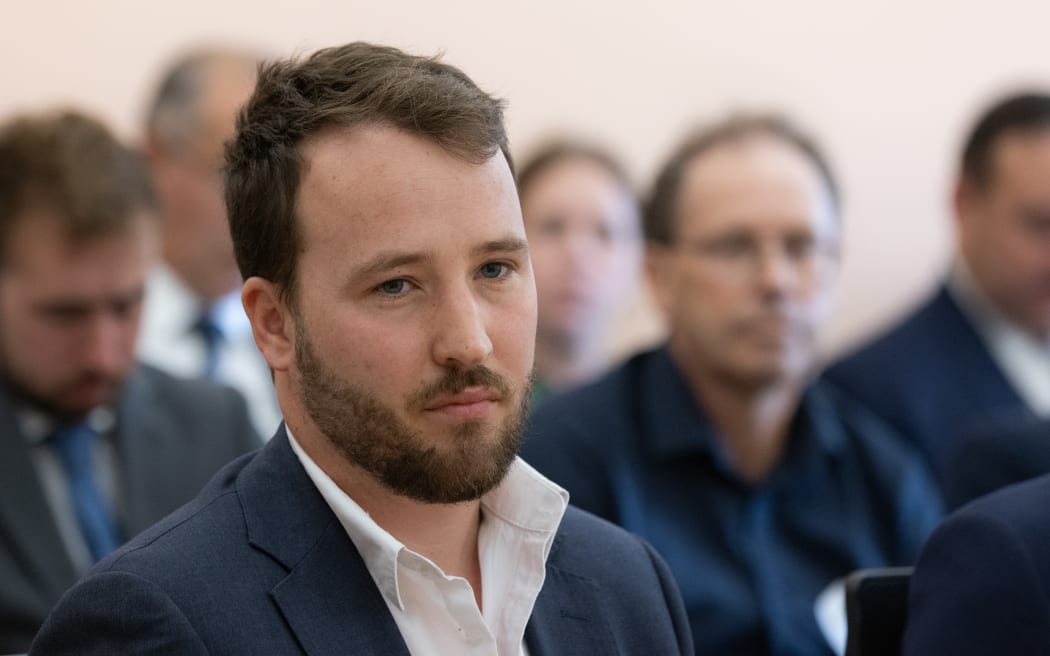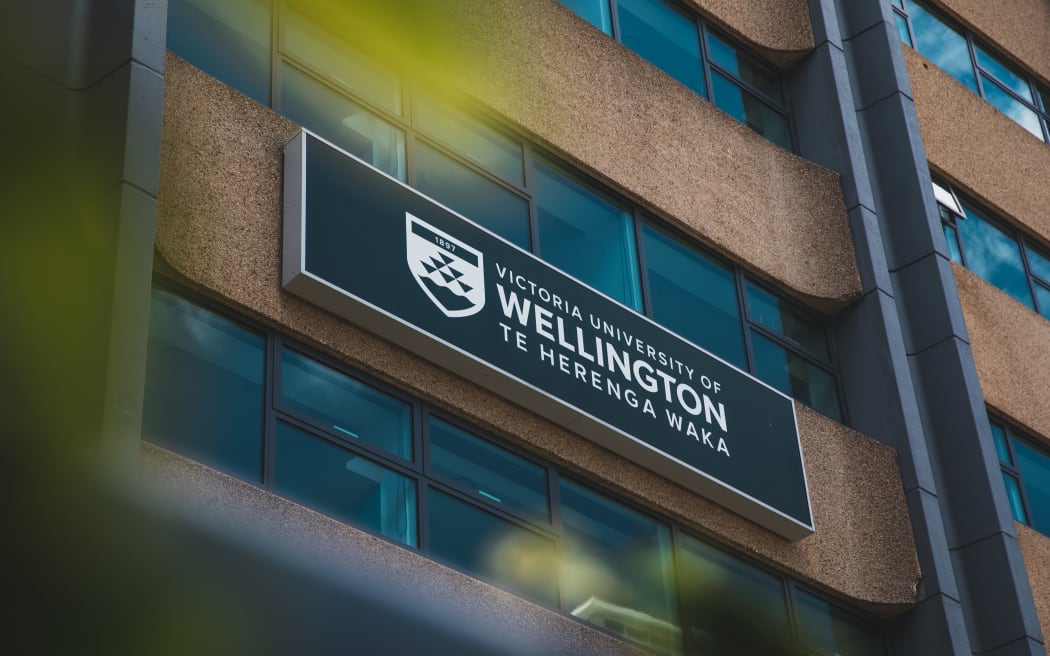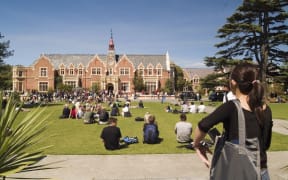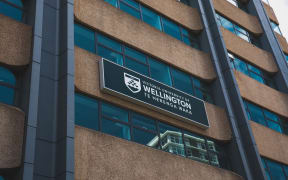
Jonathan Ayling of the Free Speech Union. Photo: VNP / Phil Smith
A rejigged format will allow a debate on freedom of speech to go ahead in Wellington's Victoria University this month after an outcry over a lack of diversity and the right-wing leanings of panellists saw the event postponed.
In an editorial in April, Salient magazine sub-editor Henry Broadbent came out against the inclusion of panellist Jonathan Ayling, chief executive of the controversial Free Speech Union (FSU), saying the organisation had "thrown its weight behind actively transphobic, hateful, and violent rhetoric".
Ayling defended his organisation and said the FSU "stood up for everyone's right to speak".
"If we're going to live in this idea that everyone gets to have a say, that in a democracy everyone gets to participate in society equally, then we're going to have to accept that if you disagree with someone or you consider their perspective offensive, or harmful, or belligerent, they still get a say," Ayling said.
On Friday morning, Victoria University Vice-chancellor Nic Smith said the debate's line-up had been expanded to include a "very balanced panel" with the addition of a Māori political commentator, rainbow community and inclusivity advocates and additional academic speakers.
The structure of the debate had also been divided in two.
Five panellists - including Ayling - would be independently interviewed and, in the second half, their responses would be discussed by a panel of academics to explore how universities could constructively hold challenging conversations to the benefit of society.
Both discussions would be facilitated by RNZ Morning Report presenter Corin Dann.
Smith said it was important to discuss uncomfortable views.
"We will bring a full discussion with a whole diversity of views.
"It will be done with the kind of scrutiny that universities have done for many years and I think - in that environment - it's going to be important that we are prepared to listen to things that we may find uncomfortable rather than decide - a priori - that certain groups need to be protected or held back from things that they might hear which I think is a rather patronising position," Smith said.

The university is also preparing for any protests that might arise due to the debate. Photo: RNZ / Samuel Rillstone
The event had been relocated from the campus's central hub to lecture theatres partially to allow panellists to participate via Zoom but also to prevent any protests disrupting the debate.
"There is the very real risk that there might be protests and voices which seek to drown out what people are going to say and make it hard for people who do want to listen to do so," Smith said.
Smith said the university had "logistical contingencies" in place to prevent any disruption but he hoped the debate could go ahead without "having to shut people down".
Broadbent said he was unaware of any planned protest action but would not be surprised if there were.
"The tenure of debate is getting quite heightened. If [protesting] does appear it's kind of in the same vein as those that are speaking on the panel. It's an expression of free speech as much as the panel is," Broadbent said.
He said the presence of a more diverse panel was encouraging and he supported the move away from the hub.
"There [was] the possibility of just wandering into what could very well be quite a heated and potentially difficult thing to walk past and hear if you're not expecting it. The hub is the central gathering point of the university. So moving it away to a more private space where you can go if you're explicitly interested does feel like an improvement to me," Broadbent said.
He said he was disappointed at the university's lack of consultation with the student body ahead of announcing the original line-up for the postponed debate.
"We're an important institution at the uni and it's also one that has a duty of care to its students. Including - in its Te Tiriti o Waitangi statute - ensuring Māori rights and interests are actively protected through honourable conduct. They have a lot of responsibilities and sometimes those can come into conflict. It's a difficult space to be in but I think that it's one that does necessitate a lot of active conversation between all of the participants in that institution and that's not what I saw here," Broadbent said.
Victoria University Students Association president Marcail Parkinson said changes to the format of the debate should ensure the discussion was more securely based in academic research.
"Most of our concerns were that the format wasn't going to promote debate that was based in evidence, research and scholarship. We think that this new format enables varieties of voices to be heard and then also enables that academic freedom discussion by that panel of academics afterwards," Parkinson said.
She said there was always a risk that harmful rhetoric might be expressed in the debate but she was confident that the structure and moderation would allow the discussion to go ahead while keeping academics "safe to practice academic freedom".
Victoria University's debate on 'The role of universities in supporting freedom of speech' will go ahead on 28 May.





